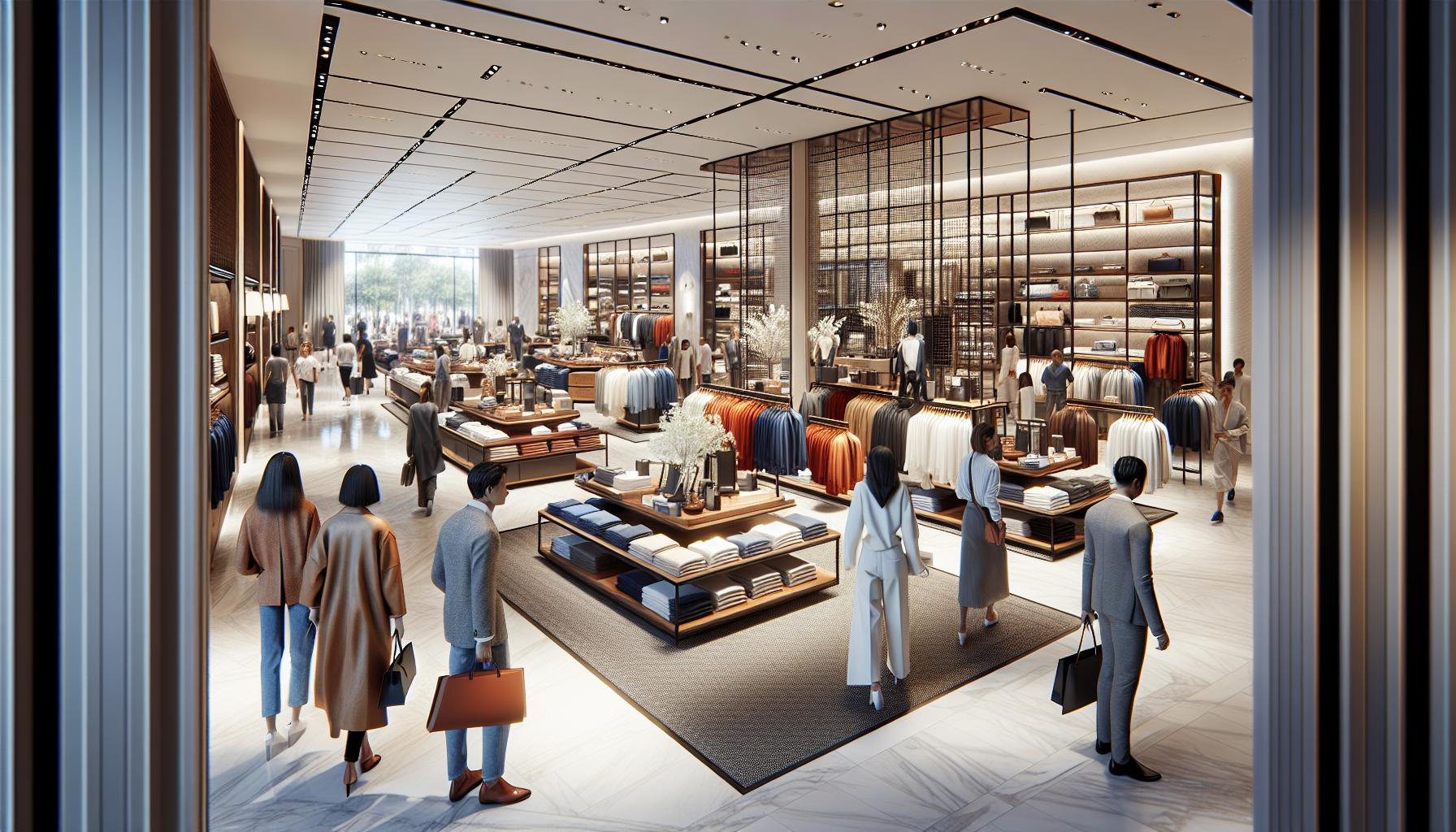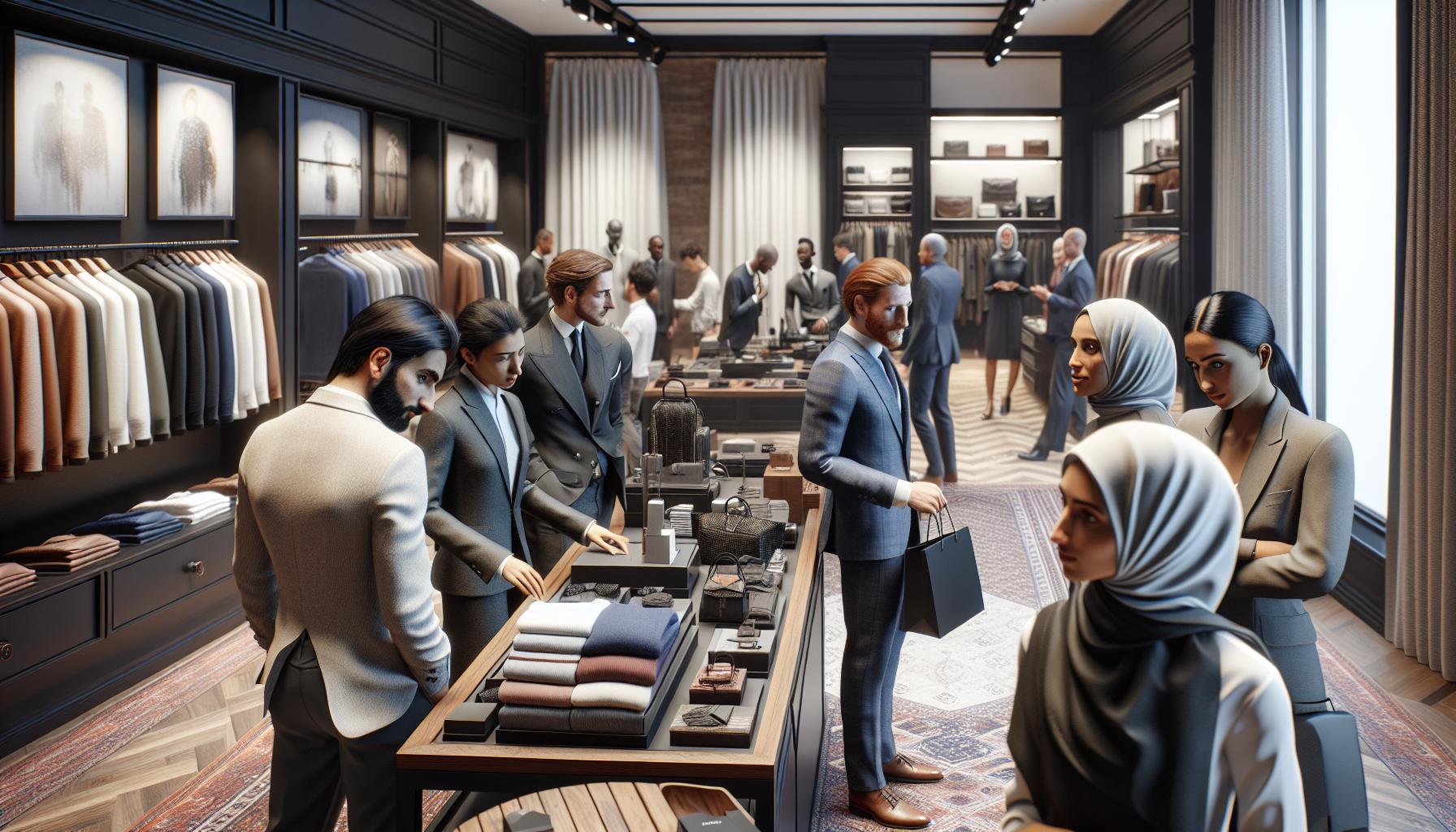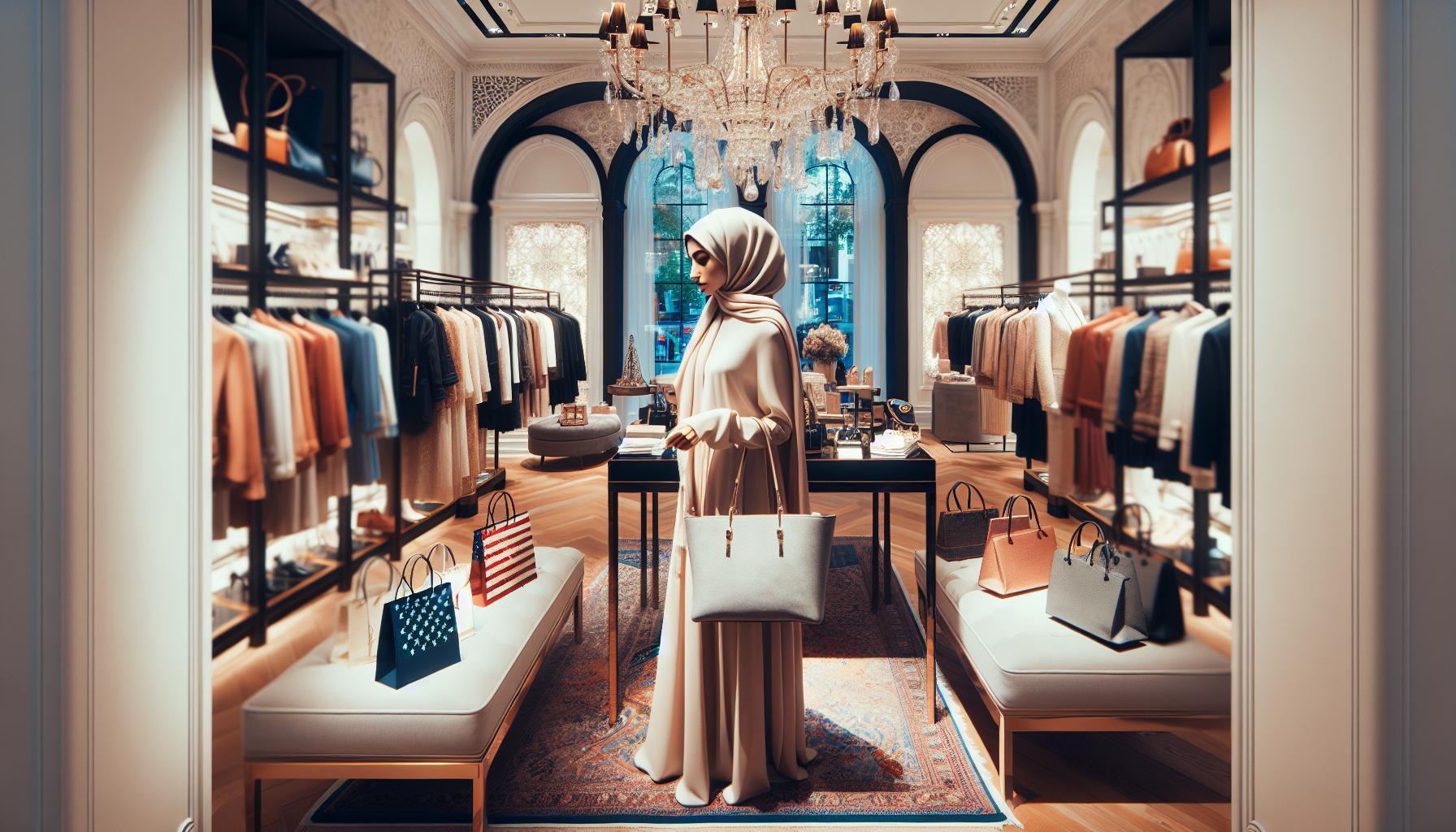Is Nordstrom Fast Fashion, I picture a brand known for quality and style. But lately, the conversation around fast fashion has intensified, making me wonder where Nordstrom stands in this debate. With the rise of sustainability concerns and ethical shopping, it’s crucial to dissect what fast fashion really means and whether Nordstrom fits the bill.
Is Nordstrom Fast Fashion business model, its approach to sourcing, and how it aligns with the fast fashion label. Are they contributing to the rapid cycle of trends that fast fashion brands are notorious for, or do they offer something different? Join me as I dive into the nuances of this popular retailer and uncover the truth behind its fashion practices.
- Nordstrom’s Positioning: Unlike fast fashion brands, Nordstrom prioritizes quality and customer service, focusing on premium products rather than rapid turnover and low prices.
- Sustainable Practices: The retailer is committed to ethical sourcing and sustainability, partnering with brands that adhere to fair labor practices and environmental standards.
- Investment in Quality: Customers are encouraged to invest in durable, timeless pieces rather than fleeting fashion trends, distinguishing Nordstrom from typical fast fashion retailers.
- Controlled Inventory: Nordstrom’s less frequent sales events and curated selections reflect its emphasis on quality over quantity, countering the high waste associated with fast fashion.
- Customer Perception: The brand is viewed as a reliable choice for fashionable, long-lasting items, further solidifying its unique market position apart from fast fashion competitors.
- Historical Roots: With over a century of history, Nordstrom has built a reputation based on exceptional service and quality, further differentiating itself in the retail landscape.
Is Nordstrom Fast Fashion
Fast fashion refers to the rapid production of inexpensive clothing, allowing retailers to quickly respond to the latest trends. The model emphasizes low cost and high turnover, often leading to frequent inventory changes. Brands like Zara, H&M, and Forever 21 exemplify this approach, with new styles appearing every few weeks.
Key characteristics of fast fashion include:
- Speed: Designers create collections in weeks rather than months.
- Affordability: Low price points attract a broad customer base.
- Trend Replication: Quick imitation of runway and celebrity styles.
- High Volume: Large quantities produced to meet demand.
Fast fashion raises significant concerns regarding environmental sustainability and labor practices. The rapid production cycle contributes to waste and pollution, while workers in low-cost countries often endure poor working conditions. Critics argue that the focus on speed and cost undermines ethical practices in the fashion industry.
In contrast to these brands, some retailers adopt a more sustainable approach, emphasizing quality, longevity, and ethical sourcing. Such strategies include using eco-friendly materials, reducing waste, and implementing fair labor practices. Understanding these differences is essential for evaluating whether Nordstrom aligns with or deviates from the fast fashion model.
Understanding Nordstrom

Is Nordstrom Fast Fashion stands as a prominent player in the retail sector, known for its commitment to quality and customer satisfaction. My aim here is to explore key aspects of its history, background, and brand positioning.
History and Background
Nordstrom originated as a shoe store in 1901 in Seattle, Washington. Founders John W. Nordstrom and Carl F. Wallin envisioned a business focused on exceptional service. Over the years, it expanded to include clothing, accessories, and home goods. By 1971, Nordstrom went public, marking a significant milestone in its growth. The retailer thrives on a simple philosophy: prioritizing customer experience and quality products. Today, with over 100 locations and an extensive online presence, Nordstrom holds a distinguished reputation within the retail landscape.
Brand Positioning
Nordstrom positions itself as a high-quality, service-oriented retailer, steering clear of the typical fast fashion model. It offers premium brands alongside exclusive collaborations, appealing to a more discerning customer base. The emphasis on quality over quantity manifests in its curated selections aimed at longevity. Nordstrom emphasizes sustainable practices, such as sourcing materials responsibly and supporting ethical manufacturing. By focusing on customer loyalty and providing personalized services, Nordstrom differentiates itself from fast fashion brands known for rapid turnover and lower quality products.
Nordstrom’s Business Model

Nordstrom operates on a business model that emphasizes quality, service, and exclusivity, setting it apart from fast fashion retailers. Its approach includes strategic pricing and carefully curated product sourcing.
Pricing Strategies
Nordstrom’s pricing strategies reflect its commitment to quality over quantity. The retailer offers a range of prices from mid-range to luxury, catering to diverse customer segments. Pricing aligns with the brand’s reputation for high-quality merchandise, reinforcing its image as a premium retailer. Sales events and promotions occur but not at the frequency typical of fast fashion brands. This focus on value rather than constant discounting supports a sustainable approach, encouraging customers to invest in lasting pieces.
Product Sourcing
Is Nordstrom Fast Fashion product sourcing focuses on quality and ethical considerations. The retailer collaborates with renowned brands and designers, often featuring exclusive collections unavailable at other retailers. Sourcing practices prioritize responsible procurement, emphasizing materials that meet environmental standards. Nordstrom engages in partnerships that uphold ethical labor practices, ensuring fair wages and working conditions for those involved in the supply chain. This commitment to sourcing practices differentiates Nordstrom from fast fashion brands, aligning more with a sustainable fashion ethos.
Analysis of Is Nordstrom Fast Fashion?

I’ll analyze Nordstrom’s position in the fast fashion debate, focusing on its business model and how it contrasts with traditional fast fashion practices.
Comparison with Fast Fashion Brands
Nordstrom differentiates itself from fast fashion brands like Zara and H&M by prioritizing quality and exclusivity over rapid production and low prices. Fast fashion models emphasize quick turnarounds, allowing for frequent inventory updates at low costs, leading to high waste and resource depletion. In contrast, Nordstrom invests in premium brands and sustainable sourcing practices, offering a selection of well-crafted garments that last longer. Priced higher than typical fast fashion items, Nordstrom encourages customers to invest in enduring fashion rather than fleeting trends. Its sales events, which occur less frequently, reinforce the brand’s focus on quality over quantity, positioning it outside the fast fashion paradigm.
Customer Perceptions and Brand Image
Customer perceptions of Nordstrom reflect its commitment to quality and exceptional service. Many shoppers view the brand as a reliable source for fashionable items that combine style with durability. Nordstrom’s reputation for high customer service enhances its image as a premium retailer. While fast fashion brands attract customers with low prices and quick trends, Nordstrom appeals to those seeking investment pieces and ethical shopping options. Surveys and reviews indicate that a significant portion of Nordstrom’s clientele appreciate the brand’s dedication to responsible sourcing and ethical labor practices, distinguishing it from fast fashion competitors. As a result, Nordstrom holds a unique position in the market, valued for its sustainable approach and long-term customer relationships.
Sustainable Practices at Nordstrom
Nordstrom actively embraces sustainable practices across its business model. Its focus on ethical sourcing and commitment to sustainability showcases its dedication to eco-friendly initiatives.
Efforts for Ethical Sourcing
Nordstrom emphasizes ethical sourcing by collaborating with brands that demonstrate transparency in their supply chains. The retailer requires partners to adhere to its Vendor Code of Conduct, which promotes fair labor practices, safe working conditions, and environmental responsibility. For instance, Nordstrom partners with companies that support fair trade and are committed to reducing their environmental impact. This approach ensures that the products offered align with consumer expectations for ethically produced fashion.
Commitment to Sustainability
Is Nordstrom Fast Fashion commitment to sustainability extends to its operations and product offerings. The company has set ambitious goals, aiming to reduce its carbon footprint and minimize waste. For example, Nordstrom implemented recycling programs for hangers and shopping bags, significantly lowering waste in its stores. Additionally, the retailer promotes sustainability through its Nordstrom Made initiative, showcasing exclusive items crafted from responsibly sourced materials. These efforts not only highlight Nordstrom’s dedication to sustainable fashion but also position it as a leader in the movement toward more responsible retail practices.
Nordstrom stands apart from the fast fashion landscape by prioritizing quality and ethical sourcing. Its commitment to sustainability and responsible practices reflects a growing awareness of the need for more conscious consumption in the fashion industry.
As I explore Nordstrom’s offerings and values it becomes clear that this retailer aims to provide a more thoughtful shopping experience. By emphasizing lasting pieces and premium brands Nordstrom encourages customers to invest in their wardrobes rather than chase fleeting trends.
In a world where fast fashion dominates the conversation Nordstrom’s approach resonates with those seeking a more sustainable and ethical alternative. This positions the brand not just as a retailer but as a leader in the movement toward responsible fashion.

